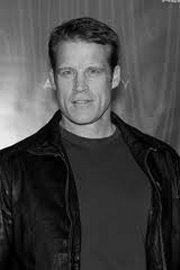
Mark Valley
RETURN TO INDEX |
U.S. Army

 |
American actor, best known for
his role as Brad Chase on the TV drama
Boston Legal. He was last seen on Fox's now-cancelled action
drama
Human Target. Played the role of Jack Deveraux on the NBC
Daytime soap opera
Days of our Lives from 1994 to 1997. In 2003, Valley played
Detective Eddie Arlette, an American police officer in London, on the
short-lived
Keen Eddie.
Served in Operation Desert
Storm. Graduated from the United States Military Academy in 1987
with a Bachelor of Science degree in mathematics and engineering before
serving in Berlin and the Gulf War. Served five years. |
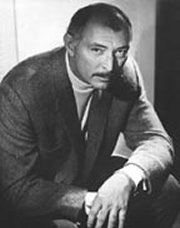
Lee Van Cleef
RETURN TO INDEX |
U.S. Navy



 |
American film and television
actor. He appeared mostly in Western and action pictures, perhaps
best known for his role in
The Good The Bad and the Ugly. His first film was the classic
Western
High
Noon. Van Cleef appeared six times between 1951 and 1955 as
Burt Tanner on the children's western
The Adventures of Kit Carson. In 1954, he appeared in the
syndicated series
Stories of the Century. He played different minor characters
on four episodes of ABC's
The Rifleman between 1959 and 1962 and twice on ABC's
Tombstone Territory. This career revival began when he appeard
in
For a Few Dollars More. Van Cleef became a major star of
Spaghetti Westerns, playing central roles in films such as
Death Rides a Horse,
Day of Anger,
The Big Gundown and
The Sabata Trilogy. In 1984, he was cast as a ninja master in
the NBC adventure series,
The Master. He also appeared in the
Bonanza
episode,
The Bloodline, along with 90 movie roles and 109 other television
appearances over a 38-year span.
After his senior year he enlisted in the U.S. Navy on October 16, 1942
at the Naval PHI Little Creek Base in Norfolk, Virginia. Lee was
the first of his class to enlist in the Armed Services. Lee's
enlistment papers show him as being 6 feet tall, 170 pounds, with brown
eyes and hair and his complexion ruddy. He was then sent to Naval
Training School in Newport, Rhode Island for basic training. On November
27, 1942 Lee was transferred to Fleet Sound School in Key West, Florida
to become a sound operator. He was then assigned to a submarine
chaser and served in this capacity until transferred to the U.S.S.
Incredible (AM-249), a mine sweeper located on the Crimean Sea. He
was present during a February 1945 visit of President Franklin D.
Roosevelt and his conference with King Abdul Aziz Ibn Saud of Saudia
Arabia aboard the U.S.S. Quincy. Lee's ship, the Incredible, was
one of six escort ships in a group of President Roosevelt's convoy
during his mission of peace. Lee was discharged in Toledo, Ohio on March
6, 1946. He had served 4 years and 3 months in military service
and received the Asiatic-Pacific Campaign Medal, African-European-Middle
East Campaign Medal with one Star, American Campaign Medal, Good Conduct
Medal, and WW2 Victory Medal. |
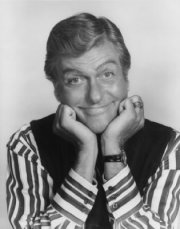
Dick Van Dyke
RETURN TO INDEX |
U.S. Army Air Forces

 |
American actor, comedian,
writer, and producer with a career spanning six decades. He is the
older brother of Jerry Van Dyke, and father of Barry Van Dyke. He
is arguably best known for his starring roles in the films
Bye Bye Birdie, for which he won a Tony Award,
Mary Poppins, and
Chitty Chitty Bang Bang, and the television series
The Dick Van Dyke Show, and
Diagnosis: Murder. He also appeared in a number of successful
television series which won him no less than four Emmys.
Served in WW2. Became a radio announcer and served in Special
Services entertaining troops in the Continental U.S. |
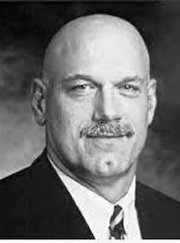
Jesse Ventura
RETURN TO INDEX |
U.S. Navy

 |
Slovak-American
ex-politician, the 38th Governor of Minnesota from 1999 to 2003, Navy
UDT veteran, actor,
conspiracy theorist, and former radio and television
talk show host. As a professional wrestler, he is best known for
his nickname, Jesse "The Body" Ventura, and tenure in the World
Wrestling Federation as a combatant and color commentator. In
2004, he was inducted into the company's Hall of Fame.
From September 11, 1969, to September 10, 1975, during the Vietnam War
era, Ventura served as part of Underwater Demolition Team 12 (UDT). |
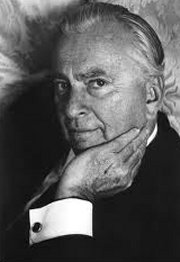
Gore Vidal
RETURN TO INDEX |
U.S. Army Reserve

 |
American author, playwright,
essayist, screenwriter, and liberal political activist. Early in
his career he wrote
The City
and the Pillar (1948), which outraged mainstream critics as one
of the first major American novels to feature unambiguous homosexuality.
In 1946, Vidal published Willawan, the first of many novels.
During the 1950s, he wrote several live television plays, many of which
were later transformed into movies: The Death of Billy the Kid was
cinematized as
The Left Handed Gun (1958) (and, over three decades later, as the
made-for-TV
Gore Vidal's Billy the Kid), while Visit to a Small Planet, after
being adapted for Broadway, served as the basis for a 1960
Jerry Lewis vehicle of the same name. A political animal all
his life by right of birth (he has twice run for congress), Vidal
channeled much of his insider's information into his 1959 play The Best
Man, wherein an Adlai Stevenson type is challenged by a Richard Nixon
type. In 1964
The Best Man was the first of Vidal's plays to be adapted for the
screen by the author himself. In addition to being an accomplished
writer, he is also a novice actor. His biggest roles to date have been
in Gattaca (1997),
Bob Roberts (1992),
and With Honors
(1994).
Served in WW2. In 1943, on graduating from Phillips Exeter
Academy, Vidal joined the reserves serving in the Aleutian Islands,
where he served as master of an Army freight and supply boat. |
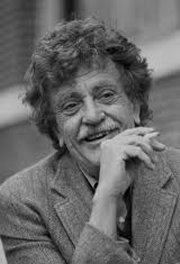
Kurt Vonnegut
RETURN TO INDEX |
U.S. Army


 |
American writer. He
wrote such works as
Cat's Cradle
(1963),
Slaughterhouse-Five (1969), and
Breakfast
of Champions (1973) blending satire, black comedy, and science
fiction. He was known for his humanist beliefs and was honorary
president of the American Humanist Association.
Served in WW2. As a private with the 423rd Infantry Regiment,
106th Infantry Division, Vonnegut was captured during the
Battle of the
Bulge on December 19, 1944, after the 106th was cut off from the
rest of Courtney Hodges' First Army. Imprisoned in Dresden,
Vonnegut was chosen as a leader of the POWs because he spoke some
German. While a prisoner, he witnessed the fire bombing of Dresden
in February 1945 which destroyed most of the city. Vonnegut was
repatriated by Red Army troops in May 1945 at the Saxony-Czechoslovakian
border. Upon returning to America, he was awarded a Purple Heart. |
|

